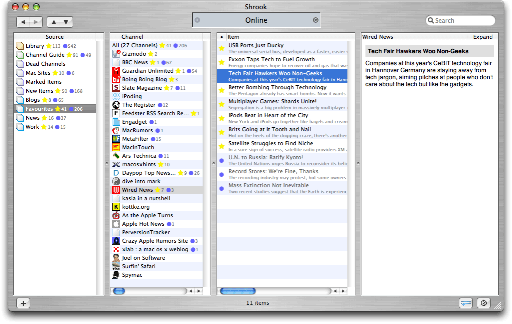Very thoughtful essay on the software tools people need to escape the ‘data smog’ that envelops most/many modern organisations. The nub is that:
Today, many knowledge workers feel overloaded because they are forced to react to a constant stream of email, phone calls and instant messages. Email, the phone and instant messaging have one thing in common – they are all push work flows. In other words, they interrupt what you are doing. Theoretically, people can ignore all three, but generally, socially, it is difficult to get away with ignoring all three when you are at the office.
That sums up my own experience. Institutional email has become dysfunctional. In my university department, for example, a conscientious person who read, reflected on, and replied to every email addressed to him or her could easily spend the entire working day doing email rather than reading, thinking, teaching or researching. This is nuts. And my personal strategy for coping — which is to ignore most of the email flow — is unfair to my more conscientious colleagues, who sometimes really do need me to pay attention to something they’ve sent. In other words, the strategy works — for me — but is anti-social.
We have to find or develop IT tools that help rather than swamp us. The key idea — encompassed in the quote above — is to step back from push technology and use pull technology which brings stuff we need or regard as important to our attention. The RSS feed is a metaphor for what I have in mind. I need to spend some time thinking about all this (which means that even more departmental emails will go unread).


